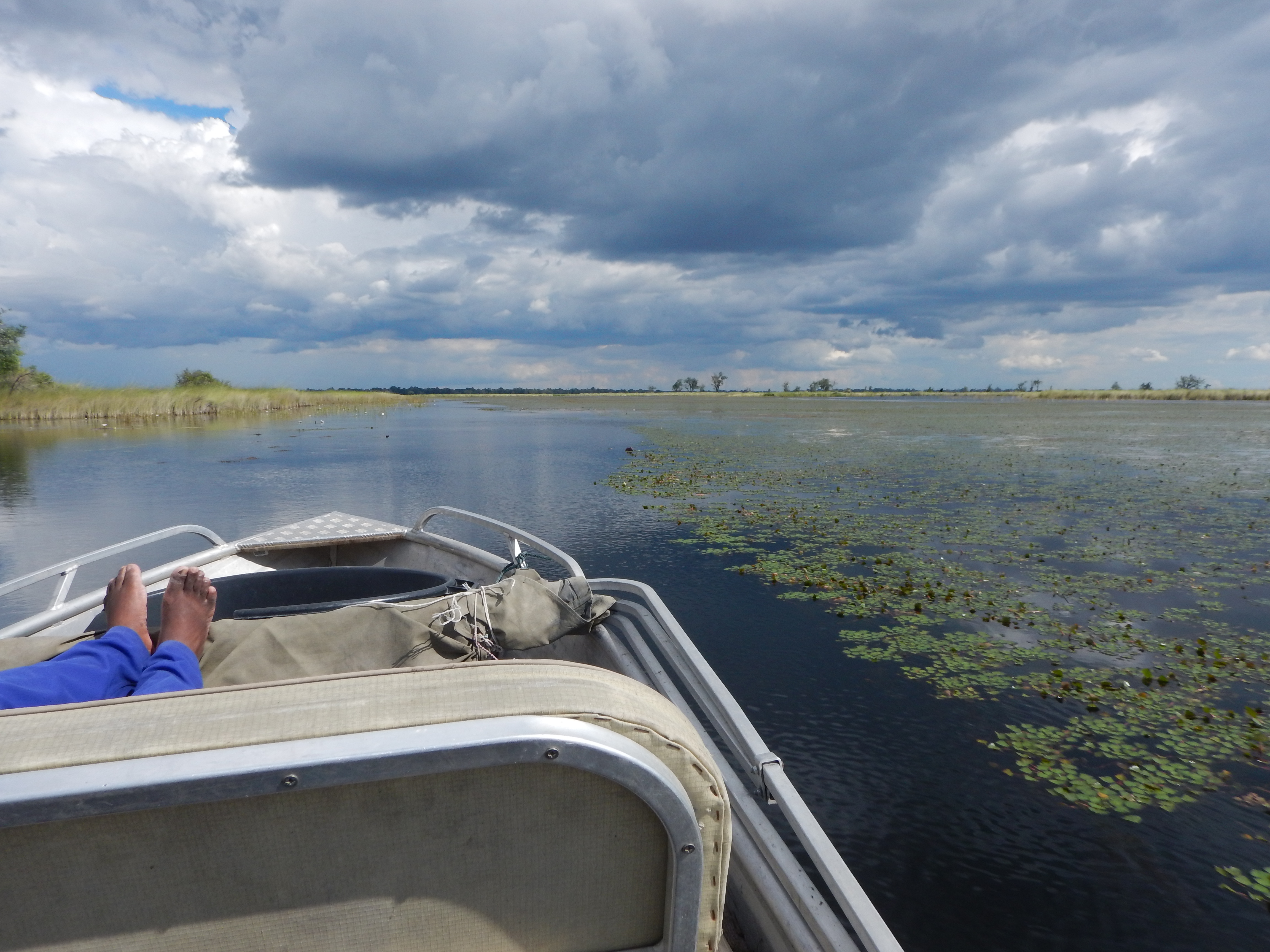April 7, 2016
Moremi is true African wilderness. The ten campsites at Xakanaxa face the Okavango flood plain on one side and acacia savannah on the other. Sometimes, when we are boating across a lagoon with the sun sparkling on water lilies and fluffy clouds drifting across a wide blue sky, I catch my breath that I am here. This is a remarkable place to work with discovery and adventure at every turn.
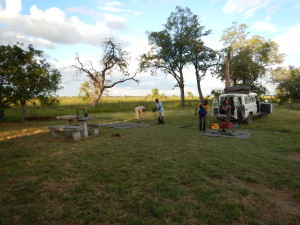
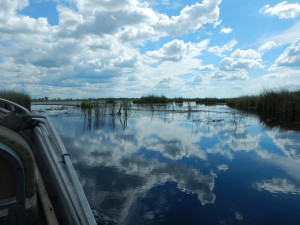
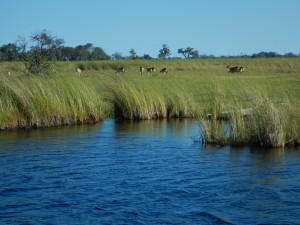
The Okavango is both dangerous and benign. An evening can feel soft and breezy. The dark skies filled with twinkling stars. The call of frogs and insects, a distant conversation among nearby campers, the glow of campfires along the river. But our campsite was active last night, and not from us.
I’ve read that hyenas are both hunters and opportunistic scavengers with broad omnivorous tastes. They eat meat, carrion, plants, and spaghetti. Yes, spaghetti! I have firsthand evidence. Hyenas found our box of plates and pots, with pasta leftovers from dinner and a box of cornflakes.
Rangers at the gate warned us to put food up in the car at night, but they mentioned baboons. Nothing about hyenas. Anyway, for reasons that remain obscure, we left dinner things on the campsite picnic table.
I woke to a loud clattering as pots and cutlery met the ground. They had a merry clanging time, mixing all the ingredients together and dragging cooking implements all over the campsite. Some brave soul from our group actually got out of his tent and chased them away. Apparently hyenas are pretty timid (except when they aren’t). I’m told they tend to run off with your pots, making for a hungry research trip if you don’t get them back.
In the morning we washed hyena slobber off our dishes.
And that’s not all. Before the rain started, I was woken by the slow but heavy footsteps of an elephant or maybe two. In the twilight of half sleep, I wondered if elephants can see well in the dark. Would they walk around my tent or just step on it (by accident)? This faded into a dream where an elephant really did step on me and it was none too comfortable.
Fortunately I was woken by the rain, a gently drizzle through the tent window mesh. Just enough to soak my map and make me worry about my computer. The golden rule of camping in the bush is you never get out of your tent at night. There are lots of stories of poor souls who would be alive today had they just stayed in their tents rather than venture out for a midnight pee or (for instance) to close the tent windows against the rain.
So there I lay, hoping the rain spitting down on my head would stop, which it did…long enough for me to fall asleep, only to be woken when the next shower blew in. Luckily the whole camp woke up when the clattering hyenas passed through. The disruption provided an opportunity to skedaddle out quickly and close that window.
You may well ask why I have to get out of the tent to close my window. What a silly design in a country where rain comes in the middle of the night and lions pounce out of the bushes to eat you if you unzip your tent. It is a great question and one I would direct immediately to the safari tent making people.
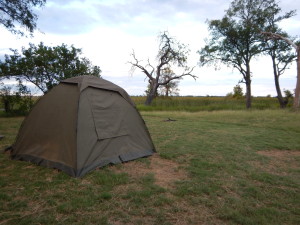
True safari tents are made of heavy canvas. The mesh windows are covered by external canvas flaps. The tents weigh a ton and will get wet if it rains hard enough, though the bottoms are usually vinyl. They are hard work to put up, with horrible hooks that are generally a tad too small to comfortably slide over the poles.
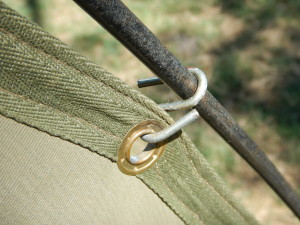
To get the hooks on you have to either force them and sacrifice your thumbs in the process, or trick them by cleverly leveraging the weight of the tent against the stubbornness of the hook. To reverse the process and take down the tent, I find a narrow screwdriver is helpful for prying off the relentless hooks.
With all that said, I admit that I am getting rather attached to my safari tent and will be sorry to go back to nylon.
As I write this entry, I am aware of a new arrival. There is a hippo near the boat dock just up from our camp. At night, hippos leave the water to graze on shore. I’m not sure when they sleep, but it doesn’t seem to overlap with me. Anyway, I am off to bed. Although the sky is clear and the breeze cool, I’ve closed my tent windows in case it rains. It’s very cozy inside this tent, listening to the night sounds, and feeling safe.
